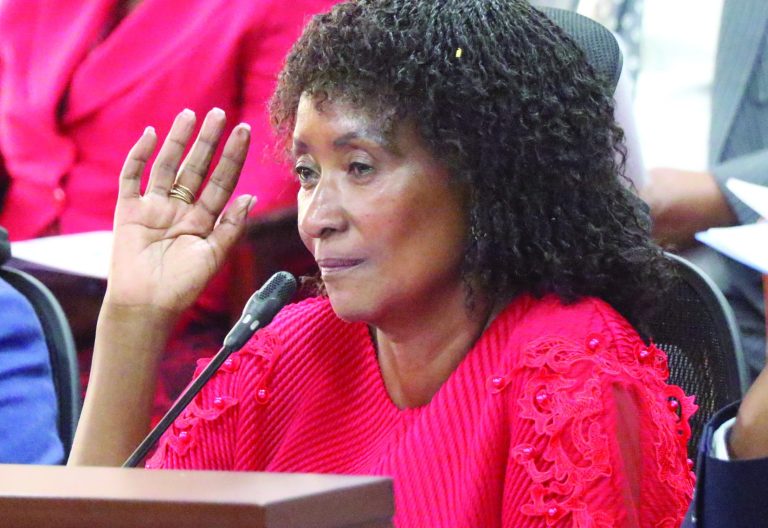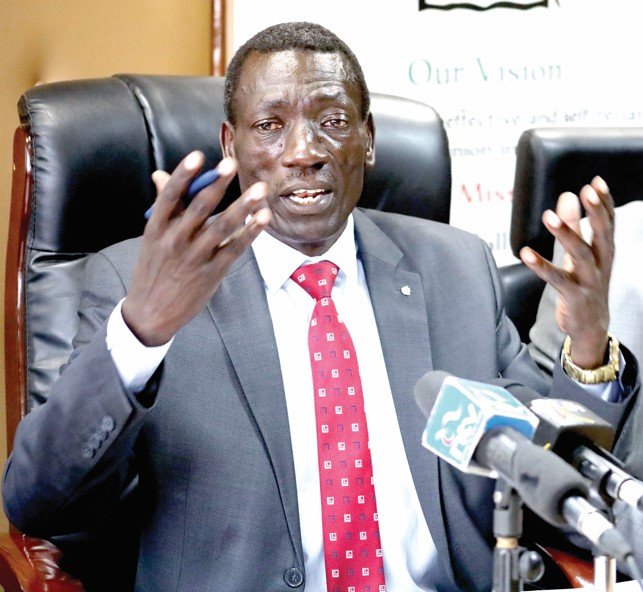TSC boss’ critics hypocrites

At the end of this month, Dr Nancy Macharia will officially leave her position as the chief executive of the Teachers Service Commission (TSC), and teachers are celebrating her exit because they felt that she was out of touch with their plight.
But are teachers any better people?
A few months ago, I asked some of my friends who manage rental houses if their tenants, who are teachers, often renege on tenancy agreements and sneak out of their houses with rent arrears or without paying electricity and water bills, like mine did.
Yes, they said – the worst tenants are teachers, and since they are almost the biggest workforce in any township, you will most likely end up with one as a tenant.
Then the sad part is that local officials of their employer, the TSC, are never willing to help aggrieved house owners recover their money unless they pay a bribe.
Many a time, the teachers themselves bribe the TSC officials to ignore the cries of house owners, without realising that they are putting the lives of their employees in danger since house owners can decide to take the law into their own hands.
But why would a person who has a house allowance default on rent and then bribe an official of the employer to ignore the pleas of house owners?
Apparently, corruption is the norm at the TSC. It is so entrenched that paying bribes is the culture, and teachers know no other way of getting things done without greasing the palms of easily corruptible TSC officials.
This is probably why teachers are celebrating the end of Macharia’s tenure.
Teachers are asked for bribes – and they pay – when they seek transfers, they pay bribes when it comes to promotions, and retired teachers must pay bribes when they want their terminal dues processed expeditiously.
Those still in employment take bank loans running into hundreds of thousands of shillings to bribe TSC officials to be promoted, or when they desperately need transfers to be near their families.
Corruption seems to be the core mandate of the TSC, and it starts at recruitment – and that is not news.
In November 2024, Wilson Sossion, the former KNUT secretary general, said that corruption is rampant at the TSC and teachers pay bribes to be employed.
“The situation at TSC is [one] where angels would weep because of the magnitude of corruption,” he said.
In February this year, the Ethics and Anti-Corruption Commission listed the TSC as one of the institutions where corruption prevalence is at 100 per cent, noting that “the indicator reveals that the impact of bribery on service delivery is more evident in the application for a TSC number”.
Mid-last month, Members of the National Assembly – another corrupt lot – were appalled at the ethnic and regional bias in January’s round of teacher promotions that benefited more than 25,000.
How bad can things be if Parliament, the headquarters of graft, is surprised at the levels of corruption in another institution?
Documents made available to the National Assembly’s Departmental Committee on Education showed that the promotions favoured certain communities and regions, and lacked fairness, transparency, and equity.
The legislators accused the TSC of promoting individuals based on ethnic affiliation and internal influence rather than merit and eligibility.
The TSC officials, together with Macharia, were at pains to explain the significant disparities in the distribution of the promotions.
While Macharia stated that the TSC applied a flexible approach in staffing to address acute shortages, it emerged that some teachers had served in the same grade for up to eight years without promotion, while others were promoted without meeting the minimum required years of service.
This was not the first time during Macharia’s tenure that the TSC was caught pants down in an opaque scheme.
We may empathise with the teachers over what they go through, but they are key players in the corruption schemes, and some of them are beneficiaries.
In November 2024, MPs asked the TSC to accelerate the recovery of Ksh358 million overpaid to teachers in salaries.
Documents presented to the National Assembly’s Public Accounts Committee showed startling cases of overpayments, with two instances of three teachers receiving Ksh12 million in excess salaries over four years and one teacher in Kericho County getting Ksh4.3 million.
Even as Macharia retires, and we hope that the new boss will reform the TSC, we should not forget that teachers themselves are corrupt, and unless they change their ways, the TSC will continue being a hotbed of graft, and their chief executive will forever be out of touch with their plight.
The writer is the Managing Editor of the Alliance for Science (AfS). These views are solely his and do not necessarily reflect the position of AfS or its partners















